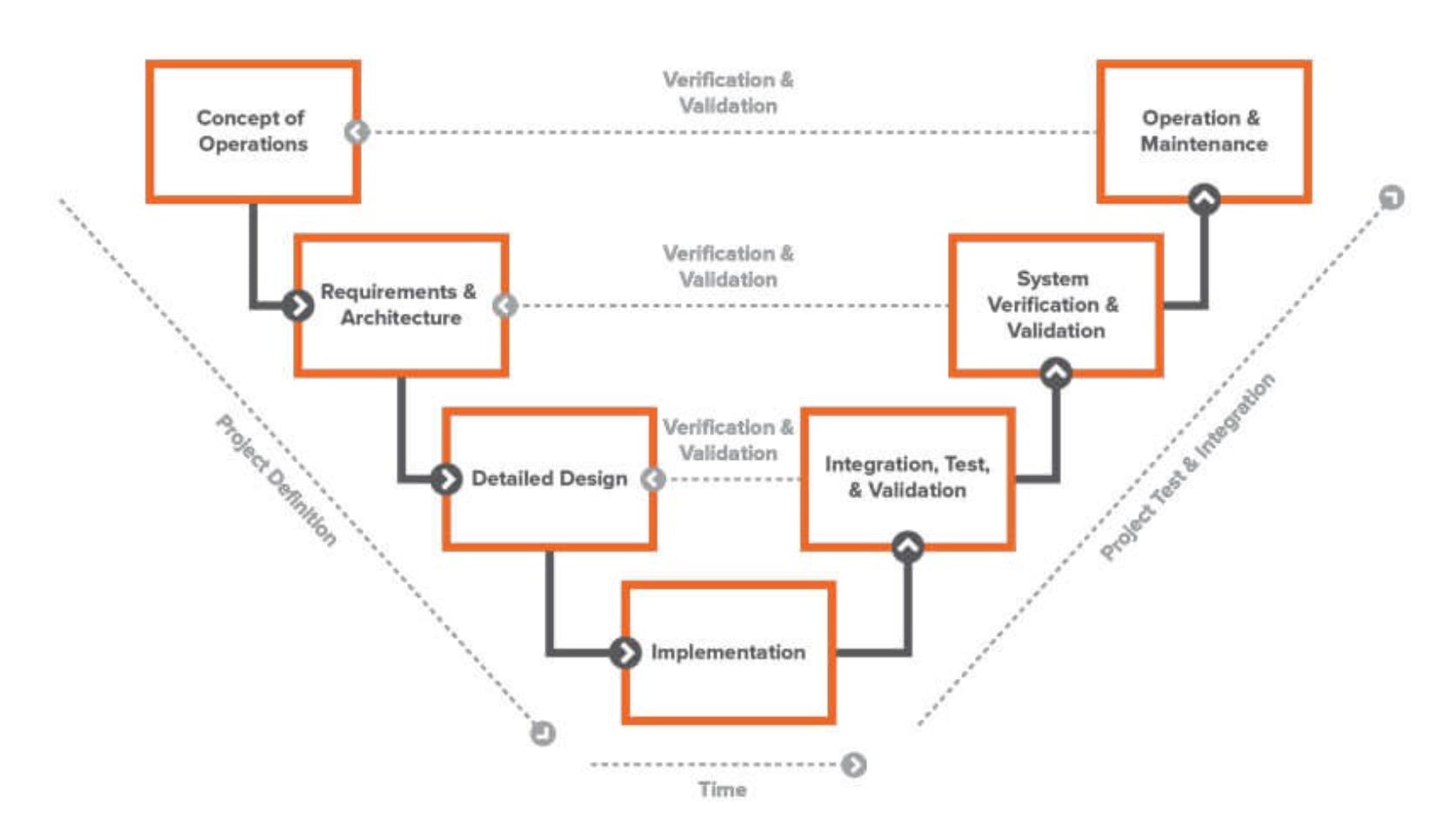A Importância da Engenharia de Sistemas | Uma Visão Holística para Projetos Eficientes e Integrados
A Engenharia de Sistemas é uma disciplina estratégica que ganhou relevância crescente na gestão de projetos complexos, seja na indústria, energia, infraestrutura ou espaço. Baseada em princípios definidos por instituições como o INCOSE (International Council on Systems Engineering), sua missão central é garantir que todos os aspectos de um sistema sejam devidamente definidos, integrados e validados ao longo de todo o ciclo de vida de um projeto.
Um Breve Histórico da Engenharia de Sistemas
As origens da Engenharia de Sistemas remontam a meados do século XX, quando a crescente complexidade dos projetos militares e aeroespaciais exigia abordagens mais estruturadas para design e integração. As disciplinas tradicionais de engenharia, mecânica, elétrica, software, etc., já não eram suficientes isoladamente. Havia necessidade de uma disciplina capaz de coordenar essas especialidades sob uma visão unificada. Da corrida espacial às modernas redes inteligentes e grandes plantas industriais, a Engenharia de Sistemas tornou-se indispensável para garantir que sistemas complexos funcionem conforme pretendido, sem retrabalhos custosos ou falhas de integração.
O Valor do Pensamento Sistêmico
No cerne da Engenharia de Sistemas está o "pensamento sistêmico", uma abordagem que prioriza a compreensão do contexto completo de um projeto, seus componentes, interdependências, partes interessadas e estágios do ciclo de vida. Quando aplicada adequadamente, a Engenharia de Sistemas ajuda a:
- Definir requisitos claros alinhados com os objetivos de negócio;
- Garantir identificação e gestão precoce de riscos;
- Manter a rastreabilidade de decisões e mudanças;
- Integrar equipes multidisciplinares por meio de fluxos de trabalho consistentes;
- Evitar silos de engenharia, onde cada disciplina trabalha isoladamente;
- Reduzir atrasos, estouros de custos e incompatibilidades durante o comissionamento.

Essas práticas tornam-se ainda mais críticas à medida que os projetos aumentam em tamanho e complexidade, envolvendo dezenas de contratados, tecnologias e interfaces.
Engenharia de Sistemas na Prática: A Abordagem da +NR
Na Plus Natural Resources (+NR), a Engenharia de Sistemas não é um conceito teórico, está incorporada na forma como entregamos nossos projetos. Aplicamos esta metodologia em projetos de todos os tamanhos, desde soluções de pequena escala até grandes desenvolvimentos industriais. Nosso foco está em:
- Forte gestão de interfaces, garantindo que todas as disciplinas se comuniquem efetivamente e que os limites de design sejam claros e controlados;
- Validação contínua de engenharia, mantendo um ciclo de feedback fechado ao longo das fases do projeto para confirmar que cada etapa atende às suas expectativas funcionais e operacionais;
- Visão holística do projeto, priorizando os passos certos no momento certo e alinhando os esforços de engenharia com objetivos de negócio mais amplos;
- Quebra de silos, promovendo colaboração integrada entre equipes mecânicas, elétricas, civis, de automação e de processo desde o primeiro dia;
- Liderança de equipes multidisciplinares, reunindo especialistas de diferentes domínios sob uma metodologia compartilhada e arquitetura de sistemas clara.
Ao fazer isso, desbloqueamos melhor desempenho, reduzimos riscos de integração e entregamos soluções mais robustas e preparadas para o futuro aos nossos clientes.
A Engenharia de Sistemas não é apenas para satélites ou megaprojetos, é uma ferramenta crítica para melhorar a eficiência, qualidade e alinhamento estratégico em iniciativas de engenharia de qualquer escala. Na +NR, acreditamos que uma abordagem baseada em sistemas é fundamental para entregar valor e inovação no mundo cada vez mais interconectado de hoje. Seja desenvolvendo uma planta de processamento mineral, projetando equipamentos submarinos ou planejando um sistema de energia renovável, nosso compromisso com a Engenharia de Sistemas garante um caminho mais inteligente e confiável do conceito ao comissionamento.
